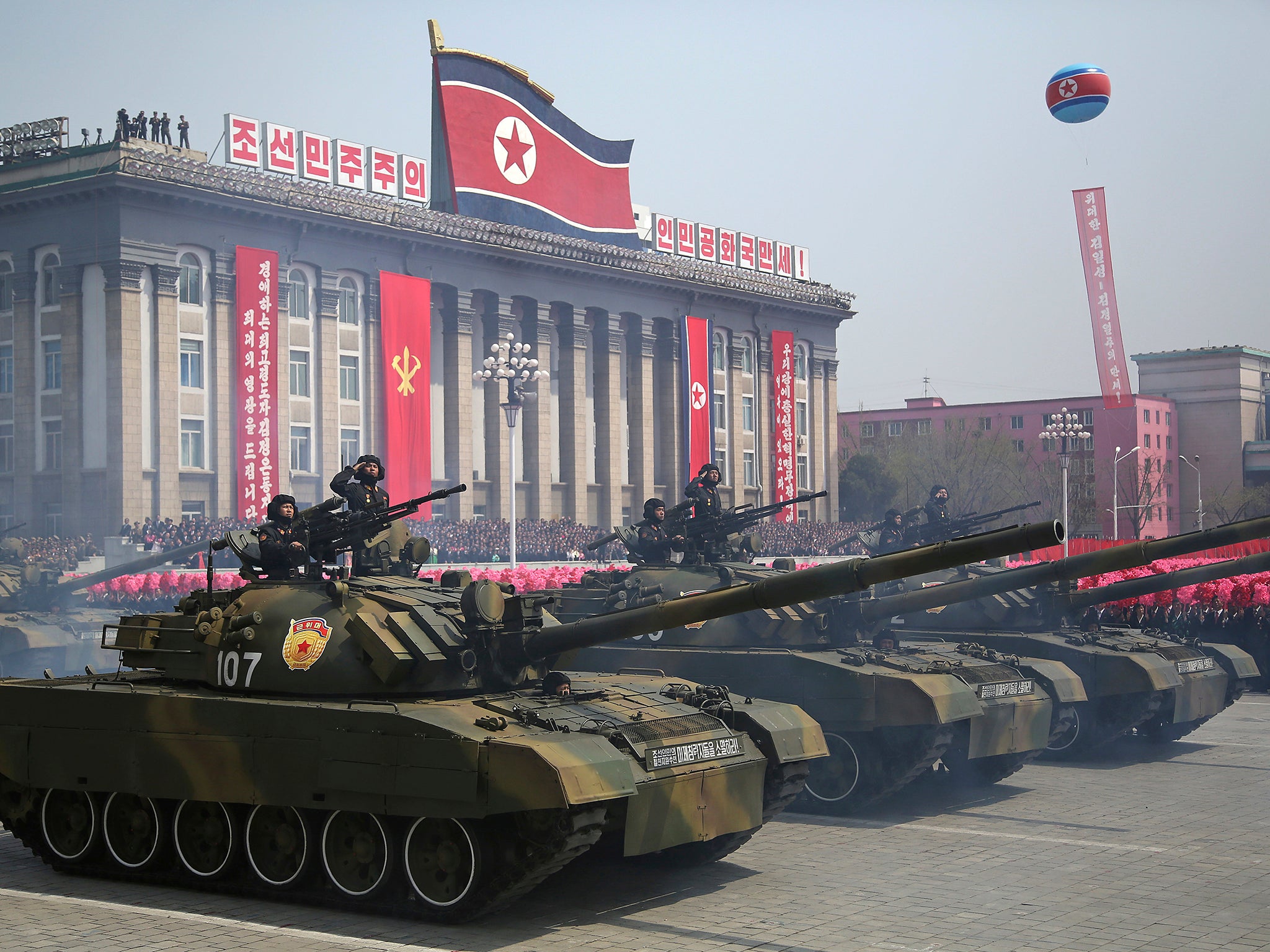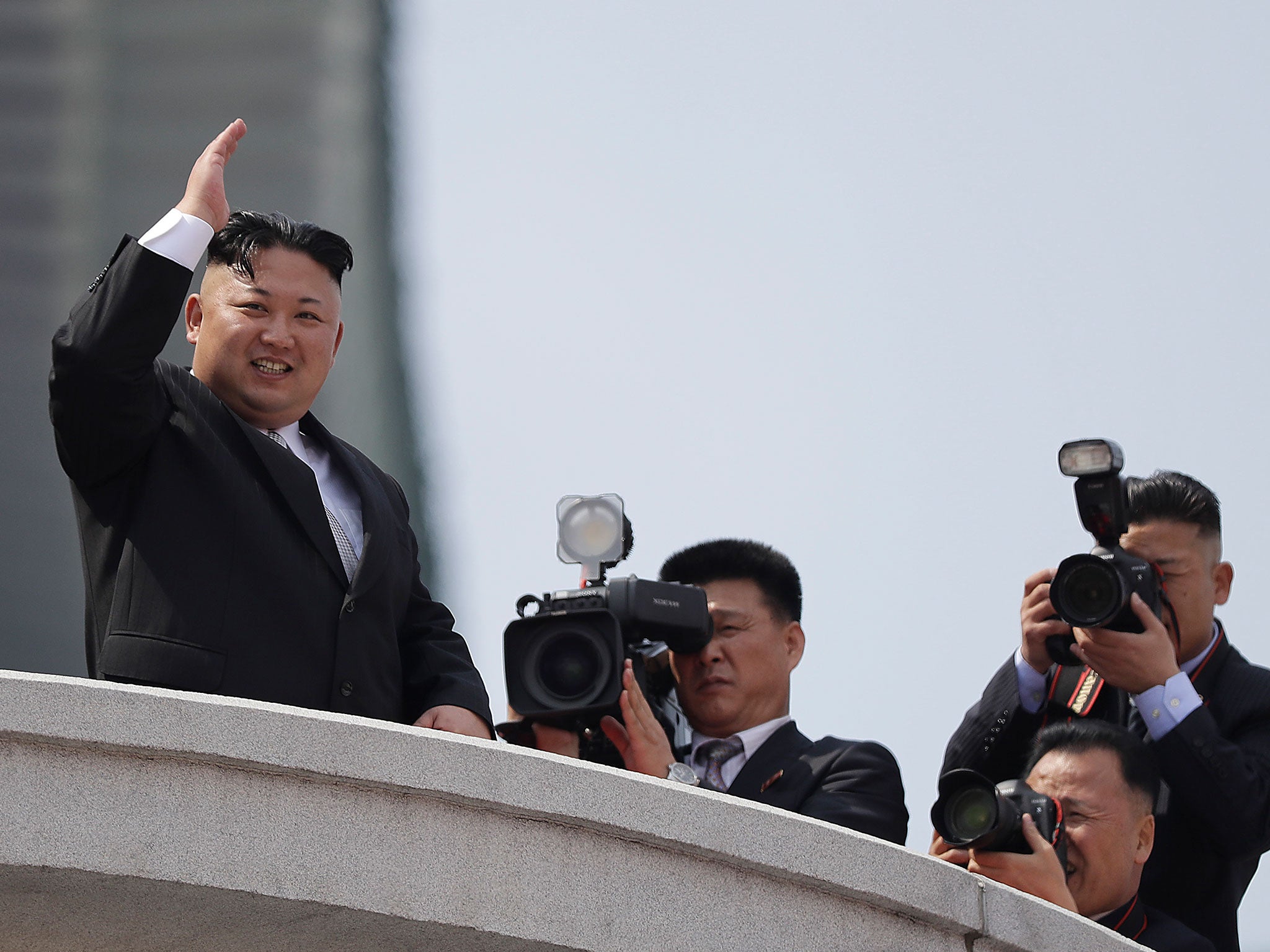North Korea 'a bigger threat to world peace' than crisis in Syria, British voters say
Tensions mounting over North Korea's missile development as bloodshed continues in Syria

Your support helps us to tell the story
From reproductive rights to climate change to Big Tech, The Independent is on the ground when the story is developing. Whether it's investigating the financials of Elon Musk's pro-Trump PAC or producing our latest documentary, 'The A Word', which shines a light on the American women fighting for reproductive rights, we know how important it is to parse out the facts from the messaging.
At such a critical moment in US history, we need reporters on the ground. Your donation allows us to keep sending journalists to speak to both sides of the story.
The Independent is trusted by Americans across the entire political spectrum. And unlike many other quality news outlets, we choose not to lock Americans out of our reporting and analysis with paywalls. We believe quality journalism should be available to everyone, paid for by those who can afford it.
Your support makes all the difference.British voters view North Korea as a bigger threat to world peace than the crisis in Syria, a poll has found amid fears of a new nuclear test.
A ComRes survey for The Independent found that 46 per cent of adults are more concerned about Kim Jong-un’s secretive state than the Syrian civil war, which Isis has exploited to expand and use as a launch pad for global terror attacks.
Only 22 per cent of respondents said Syria was a greater threat, with 32 per cent saying they did not know.

Over-35s were more likely to see North Korea as the biggest menace, while younger voters said they worried more about Syria’s impact on the world.
The survey came amid an increase in tensions over both regions.
North Korea showed off what appeared to be new inter-continental ballistic missiles at a huge military parade to mark its founder’s birthday on Saturday.
A senior official told thousands of soldiers and civilians that Pyongyang was ready to launch a nuclear attack, warning that that Donald Trump’s “reckless provocation” could be met with an “annihilating strike”.
The US President has made a series of threats towards the DPRK, writing on Twitter that he would “properly deal with North Korea” if Beijing was unable to rein in its ally and sending an “armada” of nuclear-powered warships towards the region.
China’s foreign minister urged both the US and North Korea to de-escalate the situation before it gets to an “irreversible and unmanageable stage” on Friday, calling on both sides to “refrain from provoking and threatening each other”.
“If a war occurs, the result is a situation in which everybody loses and there can be no winner,” Wang Yi warned amid growing fears that Pyongyang may be preparing for its sixth nuclear test or a major missile launch.
International efforts to stop its nuclear programme have so far failed and the US’ MOAB bombing at an Isis stronghold in Afghanistan raised questions over how Mr Trump could follow up on his fiery rhetoric against North Korea.
Meanwhile in Syria, the civil war shows no sign of slowing after entering its seventh year as bloody competition for territory continues between Bashar al-Assad’s government, extremists and rebels backed by multiple foreign powers including Turkey.
Isis has been driven out of swathes of territory by the government and Kurdish-led forces backed by US-led coalition air strikes, but the group retains its de-facto capital of Raqqa and has continued to inspire terror attacks around the world.
Isis and groups affiliated with al-Qaeda are not part of parallel sets of peace talks in Geneva and Astana, while successive attempts to broker a truce between rebels and the regime have failed.
A deal aimed to free starving civilians from two government-controlled and two opposition-controlled towns was in jeopardy on Saturday after dozens of evacuated men, women and children waiting on buses were killed in a car bombing.
It came little over a week after the US conducted its first direct military strike against the Assad regime by launching air strikes on an airbase used to launch an alleged sarin attack on a rebel-held town.
Mr Trump’s decision to launch the strike risked military escalation with Russia, which previously had planes at the base as part of its mission supporting the Syrian government.
Vladimir Putin’s forces are supporting Assad alongside troops from Iran and the Lebanese militant group Hezbollah, while Britain is among countries in the US-led coalition backing vetted opposition groups to fight Isis.
The involvement of dozens of countries on the ground and air in Syria have raised the prospect of clashes between international forces.
The bloodshed has left more than 400,000 people dead and forced more than 5 million refugees to flee the country, partly driving the ongoing crisis in the Mediterranean.
Despite efforts to stop treacherous boat crossings, more people are dying than ever before attempting to reach Europe’s shores as the political will to give survivors a home wanes across the continent.
ComRes interviewed 2,029 British adults online between 11 and 13 April 2017.
Data were weighted to be demographically representative of all British adults and by past vote recall.
Voting intention figures are calculated using the ComRes Voter Turnout Model. ComRes is a member of the British Polling Council and abides by its rules.
Join our commenting forum
Join thought-provoking conversations, follow other Independent readers and see their replies
Comments